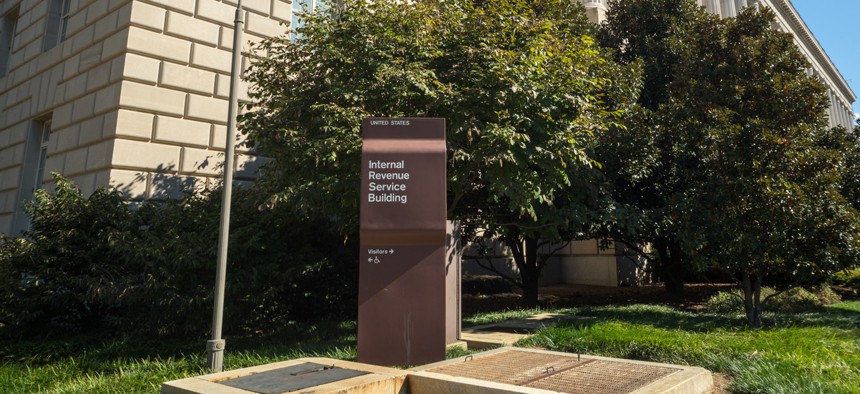
blvdone/Shutterstock.com
Senate Investigation Criticizes the IRS for Failing to Oversee Free Filing Program
Millions of Americans have spent billions on TurboTax and other tax prep that they shouldn’t have. The Senate’s Permanent Subcommittee on Investigations recommends the IRS advertise the free filing option.
A Senate investigation has found that the IRS has conducted little oversight of its partnership with the for-profit tax prep industry to offer free tax filing, and calls for the agency to increase funding to promote the free option.
“It shouldn’t be the case that Americans who are eligible to file their taxes for free end up paying substantial fees each year, but our bipartisan investigation makes clear that is what is happening,” said Sen. Tom Carper, D-Del., who produced the memo with Sen. Rob Portman, R-Ohio.
The staff of the bipartisan Senate Permanent Subcommittee on Investigations began a review of the IRS’ Free File program last year following ProPublica’s reporting that TurboTax-maker Intuit and other companies were hiding their free tax filing options from search engines such as Google. Under the Free File program, Intuit, H&R Block and other companies offer free tax prep options to Americans who make under an income threshold. In exchange, the IRS long promised not to create its own free tax filing option that would compete with the companies.
Last year alone, more than 14 million Americans paid around $1 billion to Intuit and other companies for tax prep that they should have gotten for free.
Carper added in his statement that the subcommittee’s report “stresses the importance of Congress providing the IRS with the resources it needs to improve oversight and the Free File program to ensure it better serves eligible Americans as Congress intended.”
(The tax filing deadline has been pushed from April 15 to July 15 because of the COVID-19 crisis, and most Americans can prepare and file their taxes for free, if they start at the correct website.)
The IRS reported this year that, through April 10, use of the Free File program was up 28% year over year. Despite the increase, under 5% of eligible Americans use the program, with millions paying for tax prep that they could get for free.
The Senate investigation pointed to a key reason for this shortfall: “A lack of investment in marketing by the IRS likely led to a lack of consumer awareness that hampered participation in the Free File program.”
It has been so many years since the IRS had a dedicated marketing budget for Free File that agency officials couldn’t even recall when the effort was scrapped, the report found.
Even Americans who are aware of the Free File program and seek it out on a search engine would be bombarded with confusing ads that point them instead to versions of tax prep software that charge a fee.
The Senate memo recommends that the IRS “dedicate funding — including increased funding from Congress, if necessary — to market the Free File program.”
The IRS’ failure to market the Free File program has taken place in the context of significant cuts by Congress to the agency’s budget over the past decade, even as the U.S. population has grown.
In a statement, an IRS spokesman said the agency “has taken important steps to improve the Free File program to assist more taxpayers. These changes took effect for the current tax season, and the significant surge in Free File usage this year is an encouraging sign. The IRS will remain focused on working with the Free File Alliance and others to continue enhancing this program.”
The Free File Alliance, which represents the tax prep industry, didn’t immediately respond to a request for comment.
As part of the investigation, Senate staffers interviewed IRS officials as well as executives from five online tax prep companies, including Intuit and H&R Block.
They zeroed in on an issue first reported by ProPublica: that several tax prep companies had added code to their Free File landing pages so they would not appear on search engines. (The companies removed the code after our report last year.)
The companies gave different explanations to the Senate investigators for why they had added the code in the first place.
H&R Block’s decision to suppress its Free File page from search engines “stemmed from a third-party vendor informing H&R Block that individuals clicking on the page that previously appeared in search indexes had a poor user experience.”
Intuit, for its part, told the investigators that it had added the code in order to clarify its offerings to users. “Intuit was concerned that the similar names for ‘Free Edition,’ its free commercial offering, and ‘Free File Program’ could confuse online search algorithms and potentially result in two similarly named TurboTax free sites listed next to each other in organic search results,” the report said.
The report quotes an Intuit executive calling it “outrageous” to characterize the move as “a sinister backroom decision to prevent people from filing with Free File.”
This article was originally published in ProPublica. It has been republished under the Creative Commons license. ProPublica is a Pulitzer Prize-winning investigative newsroom. Sign up for their newsletter.






